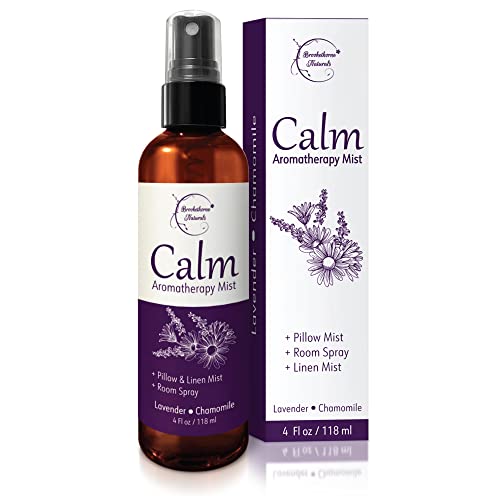When we think of lavender, its enchanting fragrance often comes to mind first. But this remarkable purple plant offers so much more than just a pleasant scent. From its potent medicinal properties to its culinary versatility, lavender’s benefits extend far beyond what most people realize.
We’ve discovered that lavender can transform your health, home, and even your dining experiences in surprising ways. Its natural compounds work wonders for anxiety, sleep issues, and skin concerns, while its distinct flavor adds a unique dimension to both sweet and savory dishes. Ready to explore the untapped potential of this extraordinary herb?
8 Surprising Benefits of Lavender Beyond Scent for Everyday Wellness
1. Natural Sleep Aid
Lavender offers remarkable benefits for those struggling with insomnia or poor sleep quality. Studies show that inhaling lavender essential oil before bedtime can increase slow-wave sleep, letting you wake feeling more refreshed. The calming compounds in lavender, particularly linalool and linalyl acetate, help quiet the nervous system and prepare your body for rest. Simply place a few drops of lavender oil on your pillow or use a diffuser in your bedroom for improved sleep quality without pharmaceutical side effects.
2. Anxiety and Stress Reduction
Lavender works effectively as a natural anxiety reliever by influencing the limbic system, the brain’s emotional center. Research published in the Journal of Alternative and Complementary Medicine found that lavender oil significantly reduced anxiety levels comparable to some prescription medications. The plant’s natural compounds can lower cortisol levels, helping your body manage stress more effectively. Adding lavender tea to your daily routine or using lavender-infused products during stressful periods can provide gentle yet powerful anxiety relief.
3. Skin Healing Properties
Lavender contains powerful antimicrobial and anti-inflammatory properties that make it exceptional for skin health. The essential oil accelerates wound healing and reduces scarring by stimulating cell growth and regeneration. Acne sufferers benefit from lavender’s ability to balance skin oil production while fighting bacteria that cause breakouts. Regular application of diluted lavender oil can calm irritated skin conditions like eczema and psoriasis while promoting overall skin health.
4. Headache Relief
Lavender provides natural relief for tension headaches and migraines without the side effects of conventional pain medications. The plant’s analgesic and anti-inflammatory properties help relax tense muscles and improve circulation to the brain. Studies in European Neurology showed that inhaling lavender essential oil for 15 minutes significantly reduced migraine severity in 71% of participants. Applying diluted lavender oil to your temples or using a lavender-filled eye pillow during headache episodes can offer substantial relief.
5. Digestive Support
Lavender tea and oil offer surprising benefits for digestive health by relaxing the smooth muscles of the digestive tract. This natural antispasmodic property helps relieve stomach cramps, bloating, and irritable bowel symptoms. The plant also stimulates bile production, improving fat digestion and preventing indigestion after heavy meals. Drinking a cup of lavender tea after eating or adding a drop of food-grade lavender oil to honey can soothe uncomfortable digestive issues naturally.
6. Respiratory Health Booster
Lavender contains compounds that help clear congestion and fight respiratory infections. The essential oil’s antimicrobial properties combat common pathogens that cause bronchitis, sinusitis, and throat infections. Steam inhalation with lavender oil can loosen mucus, reduce inflammation in breathing passages, and provide relief from coughs and congestion. Regular use during cold and flu season may help prevent respiratory illnesses by creating an environment where pathogens struggle to thrive.
7. Pain Management
Lavender serves as an effective natural pain reliever for various conditions including joint pain, menstrual cramps, and post-surgical discomfort. Research shows lavender oil can reduce inflammation and block pain receptors when applied topically. The University of Maryland Medical Center reports that aromatherapy with lavender significantly reduced pain levels in patients recovering from surgery. Massaging diluted lavender oil into painful areas or combining it with warm compresses provides targeted relief without pharmaceutical side effects.
8. Immune System Support
Lavender strengthens immune function through its potent antioxidant properties that combat free radical damage in the body. These antioxidants help protect cells from stress-induced damage while supporting overall immunity. The plant’s antimicrobial effects create a natural defense against common pathogens that cause illness. Regular consumption of lavender tea or inhalation of the essential oil may reduce the frequency and severity of common infections by improving your body’s natural protective mechanisms.
Cultivating Lavender: A Beginner’s Guide to Growing Your Own Therapeutic Herb
Growing your own lavender allows you to enjoy its therapeutic benefits right from your garden. With proper selection and care, you’ll have a thriving lavender plant that provides beauty, fragrance, and wellness benefits throughout the seasons.
Choosing the Right Lavender Variety for Your Climate
Selecting the appropriate lavender variety for your exact climate is crucial for successful cultivation. Lavandula angustifolia, commonly known as English lavender, offers the traditional scent most people associate with lavender and thrives best in cooler climates with well-draining soil. For gardeners in warmer regions, Lavandula stoechas (Spanish lavender) makes an excellent choice as it can be grown in pots and moved indoors during winter to protect from frost damage. Those living in especially hot and dry areas should consider Lavandula latifolia (French lavender), which flourishes in conditions with high heat and low humidity. Each variety brings its unique characteristics while requiring exact environmental conditions to reach its full potential.
Essential Care Tips for Thriving Lavender Plants
Proper timing matters significantly when planting lavender, so always wait until spring when soil temperatures rise above 60°F. Your lavender will need a location that receives full sun exposure (at least 6-8 hours daily) and features well-draining soil to prevent root rot. Improving drainage becomes essential in heavier soils by mixing in sand and gravel before planting.
Space your lavender plants 12-18 inches apart to promote good air circulation, which helps prevent fungal diseases. A thin layer of mulch applied around the base helps with moisture retention and suppresses competing weeds without suffocating the plant’s crown.
Water management plays a critical role in lavender care, requiring regular watering until plants establish themselves, after which you should reduce watering frequency to prevent damaging overwatering. Regular pruning after flowering maintains an attractive shape and prevents the plant from becoming woody at the base, extending its productive lifespan.
For expanding your lavender garden, take stem cuttings from healthy branches during summer months when growth is most vigorous. Applying rooting hormone powder to these cuttings significantly increases your chances of successful propagation, allowing you to multiply your lavender collection without additional purchases.
Healing Properties: How Lavender Oil Treats Skin Conditions
Lavender oil offers remarkable therapeutic benefits for skin health beyond its familiar fragrance. Scientific research reveals this natural remedy accelerates wound healing and provides relief for various skin conditions.
Managing Eczema and Psoriasis with Lavender Applications
Lavender oil contains powerful anti-inflammatory compounds like linalool and linalyl acetate that directly target skin inflammation. These active components work by modulating HSP70 proteins, which protect skin cells from environmental stressors and reduce inflammatory responses. For those suffering from eczema’s persistent itching and redness, lavender oil provides potential relief through its proven anti-irritant properties. Although comprehensive clinical studies focusing specifically on psoriasis management are still limited, the scientific evidence supporting lavender’s anti-inflammatory action makes it a promising natural option for calming flare-ups. Regular application may help soothe irritated skin and reduce the uncomfortable symptoms associated with these chronic conditions.
Natural Remedies for Burns, Cuts, and Insect Bites
Diluted lavender oil serves as an effective first-aid treatment for minor skin injuries and irritations. When applied topically to burns, lavender oil significantly reduces both pain and inflammation while its natural antiseptic properties help prevent infections. The oil accelerates wound healing by promoting collagen synthesis and improving tissue repair proteins, making it ideal for treating minor cuts and abrasions. For those suffering from insect bites, lavender oil quickly alleviates itching and swelling thanks to its potent soothing effects. We recommend always mixing lavender oil with a carrier oil such as coconut oil before application to prevent skin irritation. A simple remedy for burns or insect bites involves blending 1-2 drops of lavender oil with 1 tablespoon of carrier oil and gently applying to the affected area. For acne treatment, try diluting 2 drops in 1 teaspoon of witch hazel to create an effective natural toner that reduces bacterial load and inflammation.
Culinary Delights: Incorporating Lavender into Your Kitchen Creations
Lavender’s distinctive floral and earthy notes make it a versatile ingredient in the culinary industry. Culinary lavender (Lavandula angustifolia) offers a milder flavor profile that’s perfect for cooking, often complementing herbs like thyme or ingredients such as cream and citrus for balanced flavor combinations.
Sweet Treats: Lavender-Infused Desserts and Baked Goods
Lavender elevates desserts through various infusion methods that capture its delicate essence. Creating lavender sugar, syrup, or extract provides a foundation for countless sweet applications in your kitchen. Honey lavender ice cream delivers a sophisticated flavor profile that balances sweetness with floral notes. Lemon custard brightened with lavender creates a refreshing dessert option that combines citrus tang with subtle floral undertones. Fleur de sel caramel sauce infused with lavender offers an unexpected twist on a classic topping, perfect for drizzling over ice cream or fruit. Fresh lavender petals add visual appeal and a gentle flavor to cupcakes and other baked goods. Dried lavender buds can be incorporated directly into shortbread cookies or blended into honey for versatile glazes and dressings that transform ordinary sweets into gourmet creations.
Savory Surprises: Unexpected Ways to Use Lavender in Main Dishes
Lavender brings unexpected depth to savory dishes when used with restraint. Roasted chicken reaches new heights of flavor with a lemon-lavender-honey butter rub that creates an aromatic, beautifully caramelized skin. Creamy potato-corn-bacon chowder gains complexity through the addition of lavender paired with thyme, creating a soup with remarkable depth. Honey-lavender dressing offers the perfect complement to earthy beets or bitter greens in sophisticated salads. Blueberry lavender martinis showcase how this herb can elevate beverages beyond the expected. Honey-lavender grilled cheese sandwiches transform a simple comfort food into a gourmet experience with complex flavor layers. When cooking with lavender, moderation is key—we recommend using only 1-2 tablespoons of dried lavender buds per dish to avoid overwhelming your creation with perfume-like notes.
Natural Sleep Solutions: Lavender as a Powerful Sleep Aid
Clinical studies have consistently proven that lavender serves as an exceptional natural remedy for sleep troubles. Research demonstrates its remarkable ability to improve sleep quality, especially when incorporated into established sleep hygiene practices.
Creating Effective Lavender Sleep Rituals
Establishing consistent bedtime rituals with lavender can dramatically transform your sleep experience. Studies recommend diffusing lavender essential oil for 30–60 minutes before bedtime or applying diluted oil to pulse points like wrists and temples. Research emphasizes that combining lavender with proper sleep hygiene practices yields significantly stronger results, with scientific studies showing improved PSQI scores (p=0.01) and PROMIS sleep disturbance metrics (p=0.04) among college students. These benefits weren’t temporary—they remained effective during follow-up assessments. Aromatherapy research indicates that inhaling lavender increases stage 2 sleep, helping you fall asleep faster while reducing anxiety that often delays sleep onset. Users also report feeling more refreshed upon waking (p=0.01) after using lavender as part of their nightly routine.
DIY Lavender Sleep Products for Your Bedroom
Creating your own lavender sleep aids allows for customized answers that perfectly match your preferences. Pillow sprays offer an easy entry point—simply mix 10–15 drops of lavender essential oil with water in a spray bottle and mist your pillowcase before bed. Sleep sachets provide a gentler, continuous exposure throughout the night; fill small breathable fabric bags with dried lavender flowers and place them under your pillow or beside your bed. Diffuser blends represent another effective approach, with research supporting combinations of lavender with bergamot or chamomile oils for enhanced relaxation effects. Clinical studies confirm these methods can reduce sleep latency (the time it takes to fall asleep) while improving overall sleep architecture. Incorporating these DIY lavender answers into your bedroom creates a sleep sanctuary backed by scientific evidence rather than merely anecdotal benefits.
Stress Reduction: Lavender’s Impact on Anxiety and Mental Health
Lavender stands out as a powerful natural remedy for combating stress and anxiety in our increasingly hectic industry. Extensive research confirms that lavender significantly reduces stress levels and improves mental wellbeing through various applications.
Science-Backed Evidence for Lavender’s Calming Effects
Lavender oil possesses remarkable anxiolytic properties comparable to traditional anti-anxiety medications without causing impaired movement or coordination. Research has demonstrated that linalool, a primary component in lavender oil, produces calming effects by stimulating brain receptors through olfactory pathways. Systematic reviews and meta-analyses have consistently shown lavender’s effectiveness in reducing psychological distress and improving mood scores in clinical settings. Animal studies provide additional support, revealing that continuous exposure to lavender oil significantly reduces both anxiety and depression-like behaviors in test subjects. Clinical trials involving diverse populations further validate these findings, showing that lavender aromatherapy improves sleep quality and reduces stress levels in pregnant women, intensive care patients, and the general population alike. These studies collectively establish lavender as a scientifically verified intervention for anxiety management without the side effects associated with pharmaceutical options.
Incorporating Lavender into Daily Mindfulness Practices
Aromatherapy offers the most direct way to access lavender’s stress-relieving benefits by using essential oil diffusers or practicing direct inhalation during moments of tension. Brewing lavender tea or preparing lavender-infused water provides a soothing ritual that combines both aromatic and internal benefits for comprehensive relaxation. We recommend improving traditional mindfulness exercises by adding lavender elements—try meditating in a space with diffused lavender oil or practicing deep breathing techniques while holding a lavender sachet. The sensory experience of lavender can anchor attention during mindfulness practices, making it easier to remain present and fully engaged in the calming moment. For best results, establish a consistent routine that incorporates lavender into daily stress management practices rather than using it only during periods of acute anxiety.
Household Uses: Practical Applications of Lavender Around the Home
Lavender’s versatility extends far beyond its captivating scent and medicinal benefits. This remarkable herb offers many practical applications that can transform your home environment into a cleaner, fresher, and more natural space.
Natural Cleaning Answers with Lavender
Lavender’s natural antimicrobial properties make it an excellent ingredient for homemade cleaning products. Creating your own lavender-infused cleaner is simple—just combine dried lavender leaves with white vinegar to produce an effective disinfectant spray for multiple surfaces. Adding citrus peels to this mixture enhances its degreasing power while complementing lavender’s pleasant aroma. For everyday cleaning, a lavender-vinegar solution works wonderfully as a fragrant, all-purpose cleaner that eliminates germs without harsh chemicals. The soothing compounds found in lavender oil also serve practical purposes in laundry care, functioning as a natural fabric softener when added to rinse cycles. This not only imparts a subtle fragrance to your clothes but also helps reduce static cling. DIY cleaning products featuring lavender provide an eco-friendly alternative to commercial cleaners while filling your home with calming scents that commercial products can’t match.
Pest Control and Linen Freshening Techniques
Lavender serves as a powerful natural deterrent against various household pests. Diluted lavender essential oil applied to windowsills or doorways creates an effective barrier against mosquitoes and moths without resorting to toxic chemical repellents. Dried lavender makes the perfect natural filler for sachets that can freshen linens, closets, and drawers while simultaneously deterring unwanted pests. Placing these sachets in storage areas helps maintain fabric freshness and discourages silverfish from taking up residence among your stored items. Crafting decorative wreaths with lavender stems and buds provides both beautiful home decor and subtle pest control benefits. Homemade potpourri mixing lavender with other dried flowers creates aromatic displays that naturally freshen living spaces. Adding dried lavender leaves to bathwater or laundry rinse cycles infuses fabrics with pleasant fragrance while providing mild antibacterial benefits that help keep linens smelling clean longer. These simple applications transform lavender from merely a pleasant herb into a multifunctional household ally that addresses cleaning, freshening, and pest management needs simultaneously.
Lavender for Hair and Scalp Health: Beyond Beauty Benefits
Lavender oil delivers impressive benefits for hair and scalp health through its unique bioactive compounds like linalool and linalyl acetate. These natural components work together to create anti-inflammatory, antifungal, and circulation-improving effects that address common hair and scalp concerns.
Treating Dandruff and Dry Scalp with Lavender Remedies
Lavender’s powerful antifungal properties directly combat Malassezia, the troublesome yeast organism linked to persistent dandruff conditions. The natural anti-inflammatory effects simultaneously soothe irritated scalp tissue, effectively reducing dryness and flaking that cause discomfort. Many conventional dandruff treatments contain harsh chemicals, but lavender offers a gentler alternative while still delivering effective results. Commercial shampoos containing lavender provide a pleasant fragrance experience that enhances user compliance for long-term dandruff management. Stress reduction, another benefit of lavender’s calming aromatherapy properties, may indirectly improve various scalp conditions by lowering cortisol-related inflammation and irritation. Users with sensitive skin particularly appreciate lavender’s dual action of fighting fungal growth while calming irritated skin cells.
Promoting Hair Growth with Lavender-Based Treatments
Scientific research supports lavender’s ability to stimulate hair growth, as demonstrated in a important 2016 study using C57BL/6 mice. Topical application of lavender oil at 3-5% concentration produced remarkable results, including increased hair follicle count, enhanced dermal thickness, and greater follicular depth. The study also revealed reduced numbers of mast cells, which are associated with scalp inflammation that can impede healthy hair growth. These morphological changes suggest lavender effectively stimulates the anagen (growth) phase of the hair cycle. Blood circulation improvements from regular lavender oil application deliver more nutrients to hair follicles, creating optimal conditions for new growth. Oxidative stress reduction through lavender’s antioxidant properties further protects follicles from damage that could otherwise lead to thinning or loss. Application methods using diluted lavender oil or specialized formulations have shown promising efficacy in scientific models, with potential for human applications as research continues to advance.
The Future of Lavender: Emerging Research and Innovative Applications
Lavender’s journey from garden favorite to wellness powerhouse is still evolving. As we’ve explored its remarkable versatility beyond its signature scent the possibilities seem endless.
Research continues to reveal new benefits while innovative applications emerge across health beauty and household sectors. We’re witnessing lavender’s integration into sustainable practices cutting-edge skincare formulations and even therapeutic technologies.
We encourage you to approach lavender with curiosity and openness. Whether you’re growing it in your garden diffusing its essential oil creating culinary masterpieces or incorporating it into your wellness routine lavender offers something for everyone. Its timeless appeal and expanding potential make it truly one of nature’s most extraordinary gifts.
Frequently Asked Questions
What are the main health benefits of lavender?
Lavender offers numerous health benefits including anxiety reduction, improved sleep quality, and skin healing properties. It also helps with headache relief, digestive support, respiratory health improvement, pain management, and immune system strengthening. Its anti-inflammatory and antimicrobial properties make it effective for treating various skin conditions like acne and eczema.
How can lavender help with sleep problems?
Lavender acts as a natural sleep aid by calming the nervous system and promoting relaxation. Studies show that inhaling lavender essential oil before bedtime can improve sleep quality and help those with insomnia fall asleep faster. Adding dried lavender to pillows or using lavender linen spray can create a sleep-friendly environment that encourages deeper, more restful sleep.
What’s the best way to grow lavender at home?
Select the right variety for your climate: English lavender for cooler regions, Spanish for warmer areas, or French for hot, dry climates. Plant in well-draining soil with full sunlight exposure. Space plants appropriately for air circulation, water sparingly, and prune regularly to maintain shape. Spring is the ideal planting time, and lavender thrives in slightly alkaline soil with minimal watering once established.
How can lavender oil be used for skin conditions?
Dilute lavender oil with a carrier oil before applying to skin. It accelerates wound healing, reduces inflammation in eczema and psoriasis, and serves as effective first-aid for burns, cuts, and insect bites. Its antiseptic and anti-inflammatory properties soothe irritation while promoting healing. For best results, perform a patch test first and always use therapeutic-grade lavender oil.
Can lavender be used in cooking?
Yes, culinary lavender (Lavandula angustifolia) adds unique floral and earthy notes to both sweet and savory dishes. It pairs well with cream, citrus, and herbs. Create lavender sugar or syrup for desserts like ice cream, custard, and baked goods. In savory dishes, it enhances roasted meats, soups, and salad dressings. Use sparingly to avoid overwhelming dishes with its potent flavor.
Is lavender effective for anxiety and stress?
Research confirms lavender’s effectiveness for anxiety, with effects comparable to some medications but without side effects. The compound linalool in lavender produces calming effects by influencing the brain’s emotional center. Clinical trials show lavender significantly reduces psychological distress and improves mood. Regular use in aromatherapy, teas, or baths can help manage everyday stress and anxiety symptoms.
How can lavender be used for cleaning and pest control?
Create natural cleaning solutions by combining lavender essential oil with vinegar, baking soda, and water. Use as a fabric softener by adding a few drops to wool dryer balls. For pest control, spray diluted lavender oil around entry points or place sachets in closets and drawers. Lavender effectively repels moths, mosquitoes, flies, and spiders while leaving a pleasant, calming scent.
Does lavender help with hair growth and scalp health?
Scientific research suggests lavender oil stimulates hair growth by improving blood circulation to hair follicles. Studies show increased follicle count and improved scalp conditions with regular use. Its antifungal properties combat dandruff-causing yeast, while anti-inflammatory effects soothe irritated scalps. Apply diluted lavender oil to the scalp or choose specialized hair products containing lavender for best results.


















